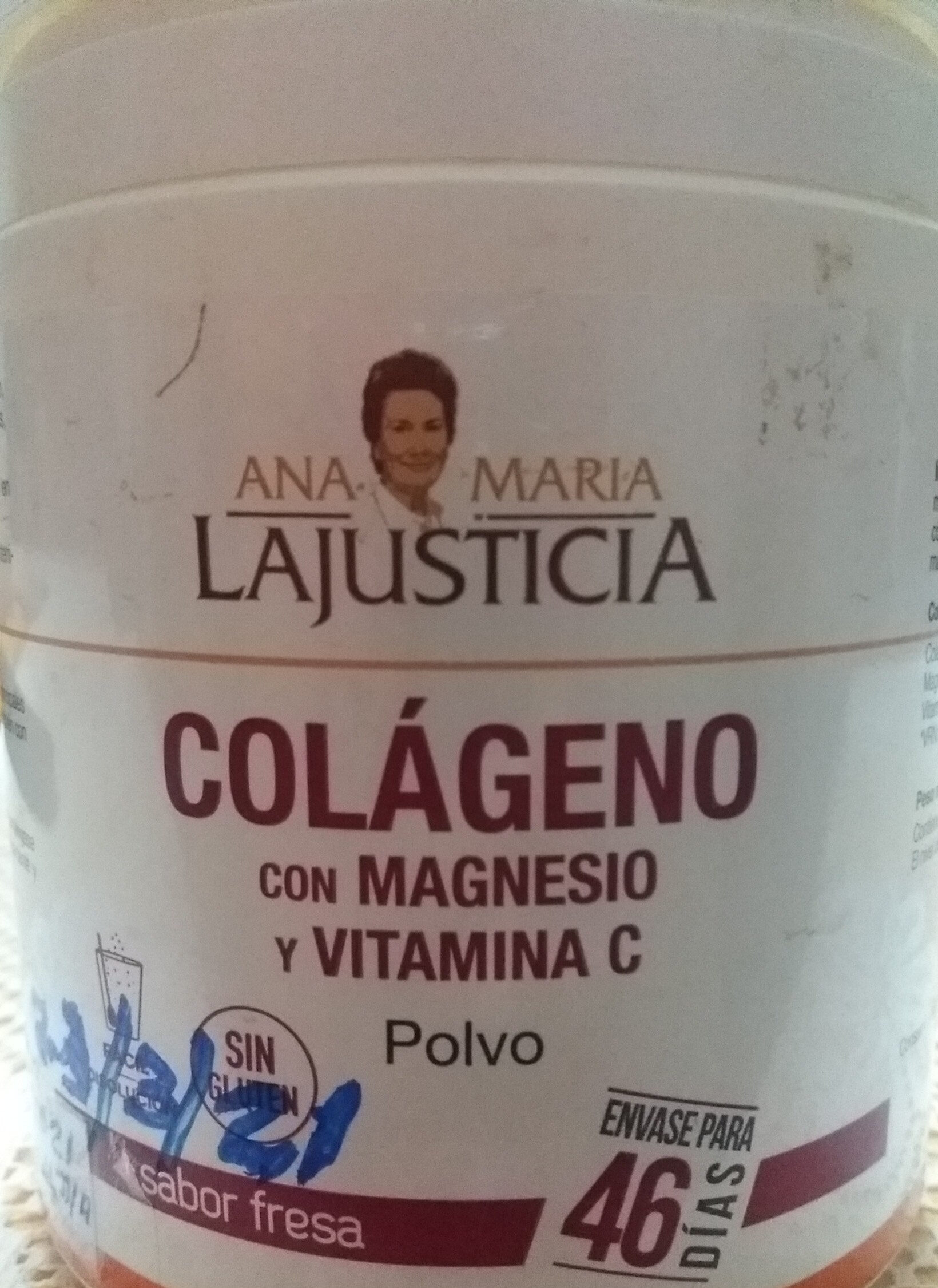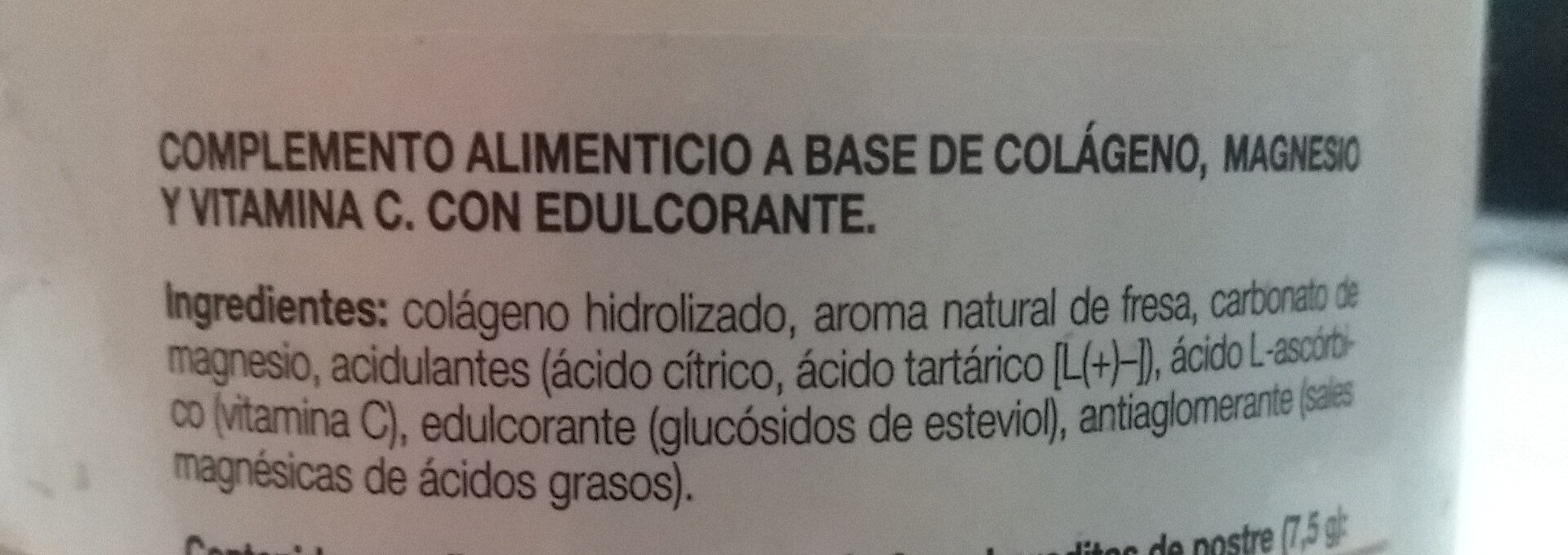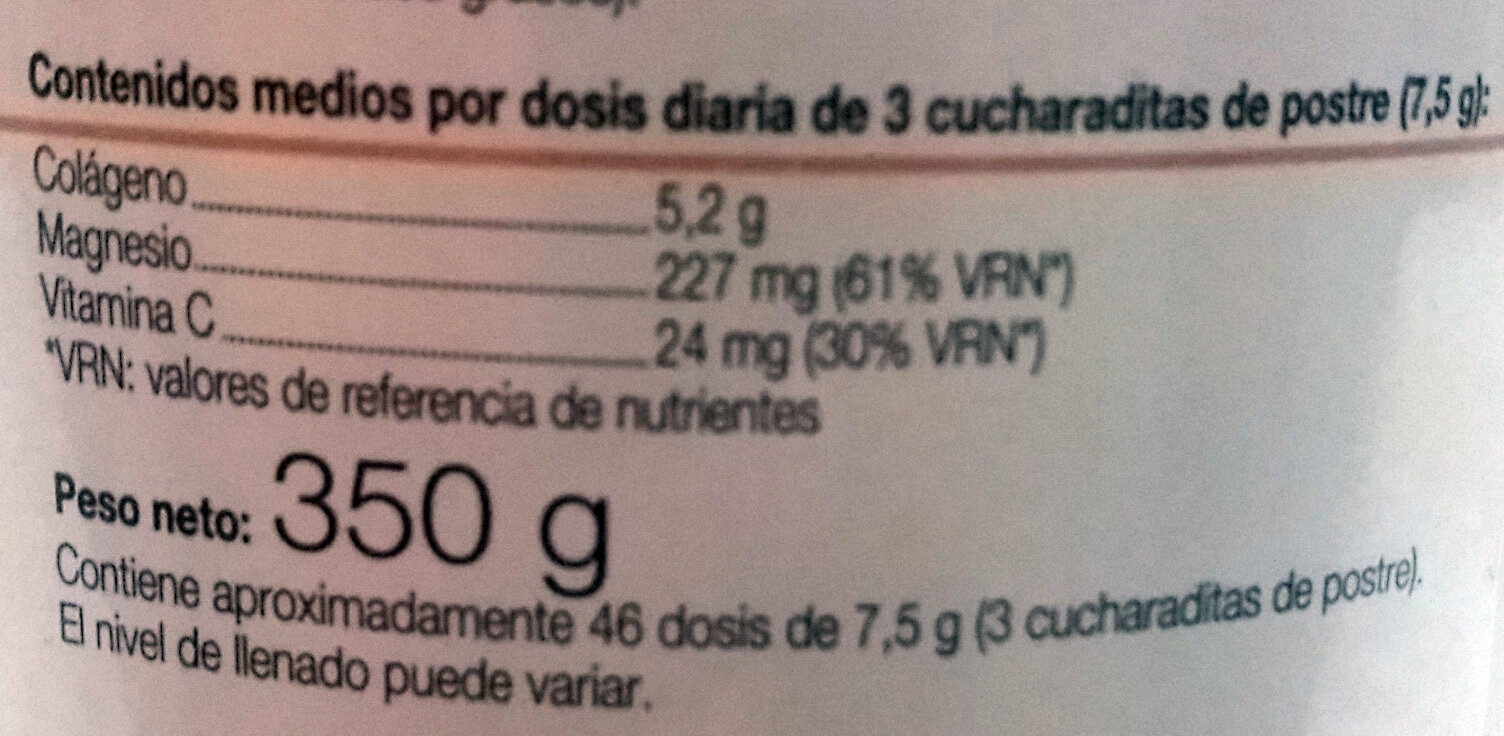Colágeno con Magnesio y Vitamina C sabor Fresa - Ana María Lajusticia - 350 g
Barcode: 8436000681949 (EAN / EAN-13)
Common name: complemento alimenticio a base de colágeno, magnesio y vitamina c, con edulcorante.
Quantity: 350 g
Brands: Ana María Lajusticia
Categories: Dietary supplements, Bodybuilding supplements, Protein powders
Labels, certifications, awards:
Low or no sugar, No gluten, Green Dot, No lactose, No sugar
Origin of ingredients: Spain
Manufacturing or processing places: Barcelona, España
Link to the product page on the official site of the producer: https://anamarialajusticia.es/shop/produ...
Stores: Farmacorp
Countries where sold: Bolivia
Matching with your preferences
Report a problem
Data sources
Product added on by 5m4u9
Last edit of product page on by 5m4u9.
Product page also edited by openfoodfacts-contributors, packbot.










